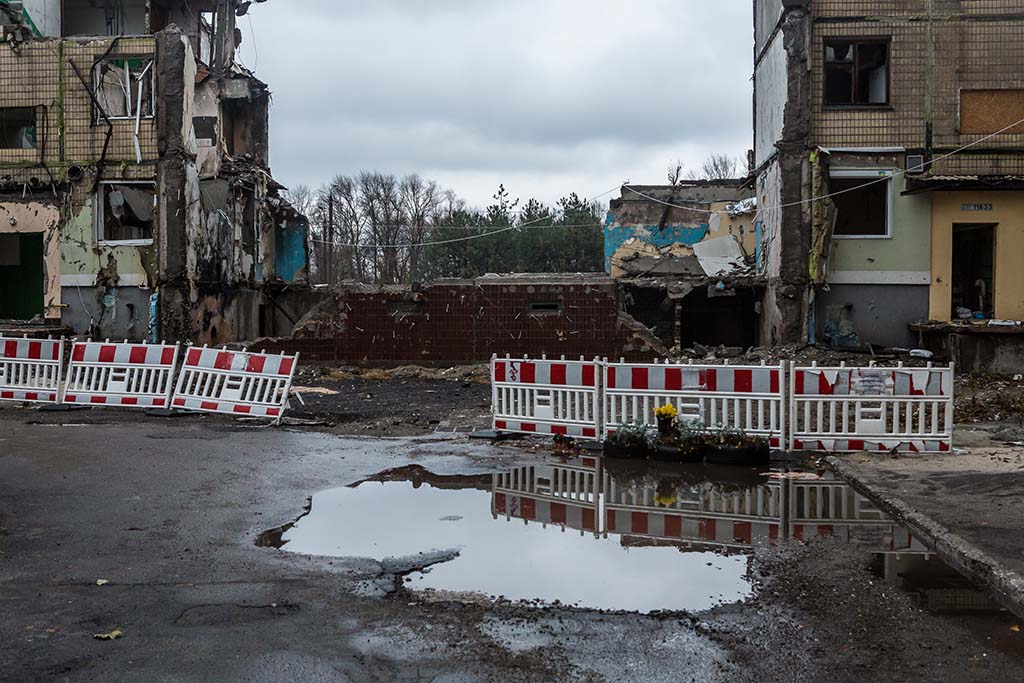The increase of gender-based violence in Ukraine amidst Russia’s full-scale invasion
In the wake of Russia’s full-scale invasion of Ukraine, many accounts of sexual violence committed by Russian forces have begun to surface. And while the media and press focus on these atrocities, women in Ukraine face other types of violence that won’t receive nearly as much attention.

In February 2022, Russia launched a full-scale, unprovoked military invasion of Ukraine. Ever since, millions of Ukrainians have been forced to flee the country amid attacks by Russian forces and indiscriminate shelling and strikes aimed at civilian targets, including hospitals, schools, and densely populated urban areas.
Shortly after the invasion started, accounts of conflict-related sexual violence began to emerge from areas occupied by Russian forces.
“We have seen some very serious cases and the most difficult ones are the ones where the violence is perpetrated against children. It is very taboo to talk about this and many parts of the areas that have been occupied are rural areas, where the knowledge about sexual violence and war-crimes is low. We suspect that we won’t know about many cases until years from now and we have to inform survivors that there are no expiry dates for war-crimes,” says Nataliia Kyrkach from the organisation Slavic Heart.
Women’s rights organisations reporting sexual violence
Women’s rights organisations in Ukraine have warned that victims and survivors are reluctant to come forward due to fear of reprisals, especially in areas still occupied by Russia, which makes documentation of the violence extremely difficult.
Some of the evidence and witness statements coming out of Ukraine suggests that Russian Forces have used sexual violence as part of their military strategy. This is also something which has been highlighted by UN Special Representative on Sexual Violence in Conflict Pramila Patten. “When you hear women testify about Russian soldiers being equipped with Viagra, it’s clearly a military strategy”, Pramila Patten, Oct 2022.
There are however still insufficient evidence to draw conclusions on the extent to which it has systematically been used as a weapon of war by Russian soldiers.
Actions from the Ukrainian government
Unlike most governments in conflict-affected contexts, the Ukrainian government has taken swift action to respond to the conflict-related sexual violence and has adopted the Strategy for the Prevention of and Response to Conflict-Related Sexual Violence in Ukraine.
The strategy aims to provide guidance and recommendations on how Ukrainian government institutions, civil society, international organisations, and the UN can together prevent and respond to the violence.
Increased domestic violence amidst Russian invasion
However, while the media and government have focused extensively on the sexual violence against women, other forms of gender-based violence, particularly domestic violence, have increased but not received the same attention.
“The circulation and availability of firearms is increasing the risk of domestic violence for women. We had one case where a husband sent his wife a video showing a loaded gun with ammunitions and said, ‘one of these is for you’. The war has brought new risks for women and children; addressing them all requires combined efforts and resources,” says Marta Chumalo, activist and founder of the organisation Women’s Perspectives in Lviv, Ukraine.
Several Ukrainian women’s organisations strive to address a spectrum of gender-based violence, while also supporting survivors of conflict-related sexual violence. The organisations operate hotlines and shelters to reach vulnerable communities, providing humanitarian aid and integration support for internally displaced persons.
Turning a blind eye
At the same time, those organisations running domestic violence shelters say that since they have had to use their shelters to house internally displaced women from different regions, they now have less room and capacity to aid victims/survivors of domestic violence.
Unfortunately, victims and survivors of domestic violence are often discouraged by the authorities to report what has happened to them. If their abuser happens to be a former soldier, they may be met with resistance while the ex-soldier is seen as a hero.
“A woman who was subject to violence at the hands of her husband who had returned from the war reached out to the police for help. But they told her: ‘you are his wife, he is a hero, you have to help him, he is ill’”, says Marta.
Women’s organisations stepping up their support
Many women’s organisations in Ukraine have stepped up their engagement to support victims and survivors of both conflict-related violence and domestic violence, while also facing their own considerable challenges. Not only do they run hotlines and shelters to provide safety for women and vulnerable groups—they also provide humanitarian aid and continue their work to raise awareness and support women’s rights in Ukraine.
Since Russia’s full-scale invasion of Ukraine, The Kvinna till Kvinna Foundation is seeing an important change in the early response and action from the Ukrainian government regarding conflict-related sexual violence, particularly in comparison to other conflicts. Whether this will also have an effect on other forms of violence against women remains yet to be seen.